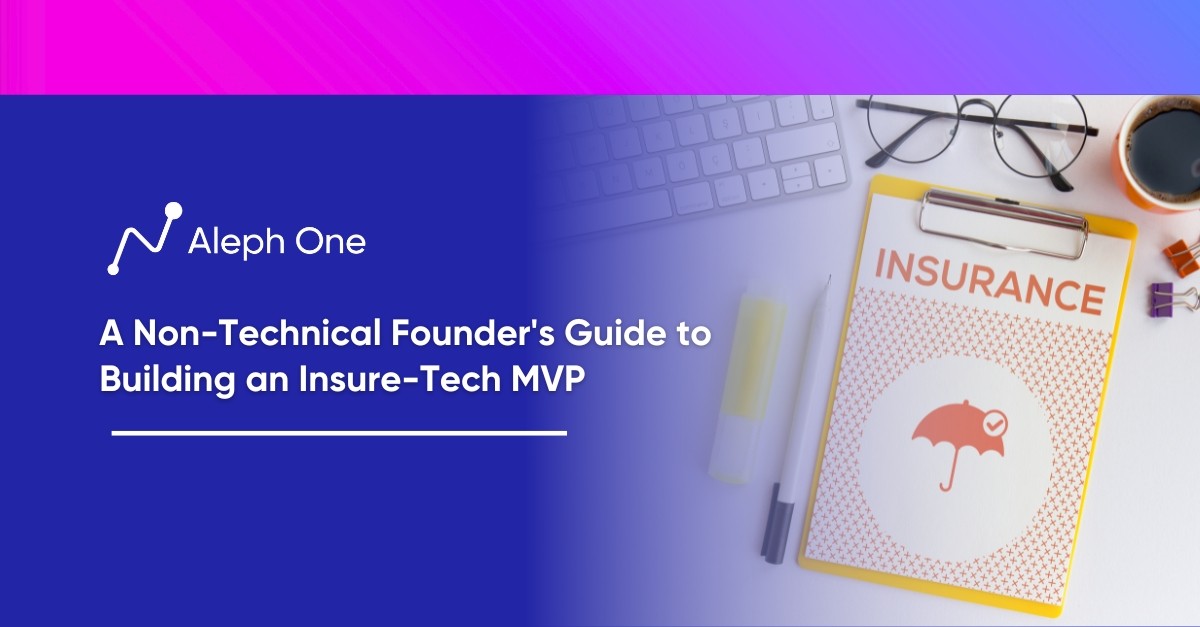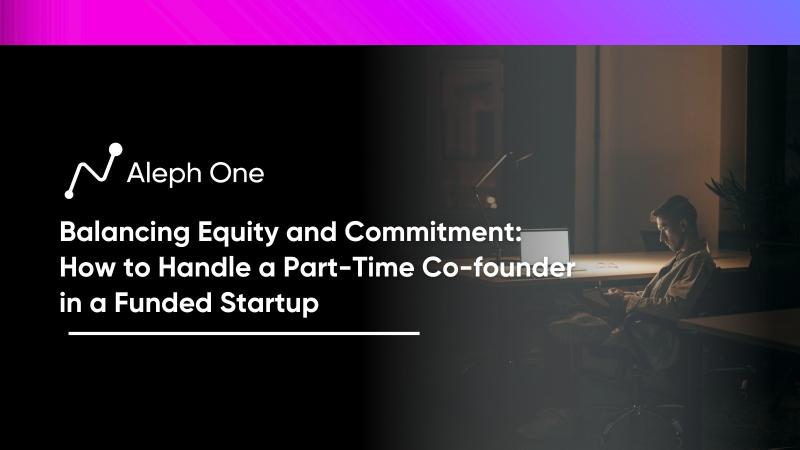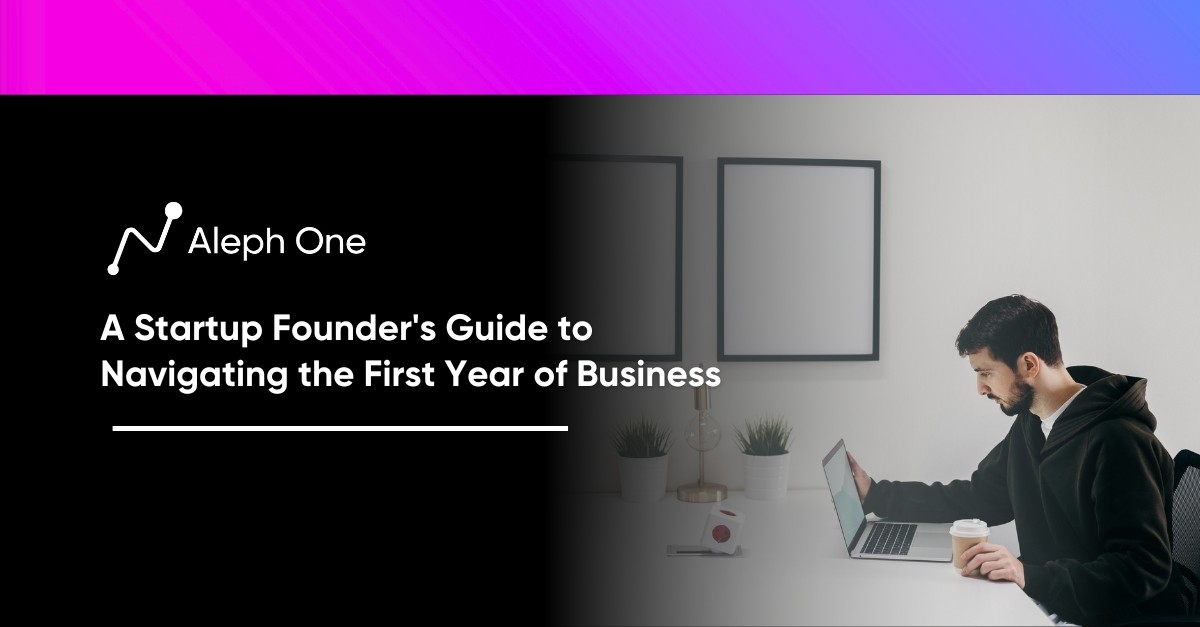Let’s work together to build something amazing. Share your project details and our team will reply to figure out the next steps to your success.

The pursuit of innovation and groundbreaking solutions often falls into the hands of determined solo entrepreneurs. Their passion, vision, and unwavering commitment drive them forward, but they may find themselves at a crossroads – the need for technical expertise that can breathe life into their ideas. In this article, we delve into the intricacies of the co-founder’s quest for solo entrepreneurs, offering practical insights to unravel the challenges and capitalize on the opportunities of forming the perfect technical partnership. Whether you’re a visionary seeking a coding virtuoso or a technical maestro searching for a guiding vision, these tips will illuminate your path toward synergy and success.

The Co-Founder Relationship: More Than Just Business
A co-founder relationship is like a marriage. It requires compatibility, trust, and a long-term commitment to the shared vision and values of the business. Successful co-founder relationships, like Bill Gates and Paul Allen of Microsoft or Steve Jobs and Steve Wozniak of Apple, stood the test of time because they were built on a foundation of shared passion and trust.
Challenges in Co-Founder Dynamics
However, co-founder relationships also face challenges that can strain the partnership. Disagreements over priorities, values, and the company’s direction are common and can be difficult to navigate. Personality clashes, conflicts over ownership and responsibilities, and unequal workloads often arise. If these issues are not appropriately addressed, they can doom the relationship and the business.
Expectations and Realities
For solo entrepreneurs seeking a co-founder, it’s essential to go in with realistic expectations about the challenges. A co-founder relationship is not simply a business partnership – it’s a marriage of shared purpose that must be nurtured and strengthened over time. Choose a co-founder based not just on skills and experience but also on shared values, work ethic, and compatibility. Discuss priorities, values, ownership, roles, and responsibilities upfront to ensure you are on the same page.
Compromise and Communication are Key
Be willing to compromise when challenges and disagreements emerge. No two people share the same vision, so co-founders must be willing to listen to different perspectives and find common ground. Share feedback openly and honestly, and be ready to accept criticism and input. Most importantly, build trust through open communication and follow-through. Trust is the foundation for a lasting co-founder relationship.
Cultivating a Lasting Partnership
With the right person by your side, navigating the ups and downs of entrepreneurship can be a lot less lonely and more fun. But choose your co-founder wisely – this is one of the most important decisions you’ll make in building your business. A great co-founder relationship can propel your startup to new heights, while a poor one can quickly send it crashing down.
Know Thyself: Understand Your Strengths, Weaknesses, and Vision
Before seeking a co-founder, entrepreneurs must deeply understand themselves, their key strengths and weaknesses, and their vision for the business. Conducting self-assessments like the Enneagram personality test or a SWOT analysis can help identify your skills gaps and the traits you need in a partner.
Unveiling Complementary Dynamics
The Enneagram categorizes people into nine personality types based on their core values and motivations. Knowing your type can help determine what co-founder might complement you best. For example, an Enneagram 3, the Achiever, may work well with an Enneagram 5, the Investigator, who can provide strategic thinking. The SWOT analysis assesses your strengths, weaknesses, opportunities, and threats. Your weaknesses represent skills gaps that a co-founder could fill.
Crystalizing the Vision: The Prerequisite for Co-Founder Alignment
With self-knowledge comes clarity of vision. You must have a clear vision for your business’s future and purpose before bringing on a co-founder. If you have doubts about your vision, a co-founder won’t remedy that. They need to fully buy into the vision to establish a partnership built to last. The vision should align with your values and priorities in business and life.
Personality Fit and Skills Harmony
When searching for a co-founder, look for someone who compliments your personality, work style, and skills. For example, Steve Jobs and Steve Wozniak had opposite personalities but shared a passion for tech innovation. Their opposite traits and abilities made them a powerful partnership. In contrast, a partnership between two strong-willed visionaries may need a mediator to balance them.
Creating a Cohesive Co-Founder Bond
The key is finding someone whose strengths remedy your weaknesses and who shares your most important values and priorities. With self-knowledge and a clear vision, you can find a co-founder who compliments you perfectly to build an enduring partnership. But you must go in with realistic expectations of yourself and your potential partner to establish the right relationship from the start.
Opposites Attract: Look for a Co-Founder Who Fills Your Gaps
As the saying goes, opposites attract. This is often true in co-founder relationships as well. Partners with opposite personalities, skills, and work styles can complement each other well and fill in each other’s gaps. As an entrepreneur, identify the key skills and traits you lack that would benefit your business. Then, look for a co-founder who possesses those qualities.
Seeking a Complementary Co-Founder
For example, if you are an innovative visionary who lacks operational skills, seek a practical, detail-oriented partner. If you are an outgoing evangelist but lack technical skills, find a co-founder with engineering expertise. Famous examples of co-founders with opposite strengths include Steve Jobs and Steve Wozniak of Apple (mentioned above), and Larry Page and Sergey Brin of Google.
Evaluating Candidates Objectively
Once you determine what you need in a partner, evaluate potential candidates objectively. Look beyond superficial qualities and determine if their work style, values, and priorities align with your own. Discuss your key challenges openly and see if they have solutions that complement your thinking. While shared enthusiasm and vision are important, opposite viewpoints and skills are equally valuable.
Striking a Balance in Similarity and Difference
The key is finding the right balance of similarity and difference. If co-founders are too alike, they risk being an “echo chamber” and lacking diverse perspectives. If they are too different, they may face challenges finding common ground and making decisions together. The ideal co-founder relationship has a mix of shared purpose and values as well as complementary skills and personalities.
Inward Reflection: The Key to Effective Co-Founder Matchmaking
Establishing this balance begins with honest self-reflection. Be transparent with yourself about your key weaknesses and limitations as an entrepreneur. Seek out a co-founder who excels in your areas of struggle but also shares your core vision and values. Discuss your differences openly and look for ways your opposite qualities can benefit the business. With hard work and commitment, opposite co-founders can build a partnership that leverages their differences to create something greater than the sum of their parts.
Set the Ground Rules: Establish Expectations and Ownership Early On
One of the entrepreneurs’ biggest mistakes when bringing on a co-founder is failing to establish clear rules and expectations upfront. While the early days of a partnership can feel exciting and harmonious, challenges are bound to arise eventually. The best way to navigate them is by setting ground rules before officially launching the business together.
1. Determine Each Co-founder’s Roles and Responsibilities
Will you each focus on separate areas or share leadership of key functions? Discuss each person’s strengths and passions and how those align with the needs of the business. Be as specific as possible to avoid confusion and conflict down the road.
2. Establish Each Co-founder’s Equity and Ownership Stake
This can be an uncomfortable conversation, but getting it in writing upfront is critical. Discuss each person’s financial investment, skills, connections, and other contributions to determine an equitable split. Be open to revising this over time as roles and contributions change.
3. Make Sure you Share the Same Core Values and Priorities
Discuss your fundamental principles and vision for the company culture to ensure you have a shared philosophy of building the business. Differing values and priorities are a recipe for co-founder conflict.
4. Put Discussions and Decisions in Writing with a Co-founder Agreement
This document should outline each person’s role, equity stake, values, priorities, and commitments to the partnership. It will help provide clarity, accountability, and a reference point if challenges arise. While the specifics of a co-founder relationship may evolve, this initial agreement establishes a foundation of trust and shared expectations to build upon.
Starting on the right foot with your co-founder is critical. By establishing open communication, shared values, clear expectations, and a mutual commitment to the business and each other, co-founders can set the ground rules for a successful long-term partnership. With the right partner and mindset, navigating changes and challenges becomes much more possible.
Be Willing to Pivot: Embrace Changes in the Partnership Over Time
Successful co-founder relationships can adapt to changes over time. Priorities, values, and skill needs will shift as a company grows, and co-founders must be willing to pivot to match these changes. What worked during the early startup days may not work as the company scales, and co-founders need to redefine roles, responsibilities, and ownership stakes to keep the partnership strong.
Flexibility in Action: The Apple Story of Partnership Pivot
For example, in the early days of Apple, Steve Jobs handled the vision and product design, while Steve Wozniak focused on engineering and coding. But as the company grew, Jobs took on more of a leadership and CEO role, while Wozniak eventually left his full-time position to become an educator. With Wozniak’s role evolving, the co-founders could pivot to changing needs and priorities. This flexibility and willingness to adapt allowed their partnership to thrive during Apple’s crucial early years.
Learning from Setbacks: The Twitter Lesson
In contrast, Evan Williams and Biz Stone had a falling out not long after co-founding Twitter. While their partnership worked initially, differences in work styles and priorities caused tension over time. Rather than adapting to changes, their relationship broke down – demonstrating the importance of co-founders being willing to pivot. If Williams and Stone had redefined their roles and responsibilities as Twitter grew, they might have been able to navigate challenges and last as partners.
The Power of Regular Co-Founder Reassessment
Entrepreneurs should establish a process for continually reevaluating the co-founder relationship and partnership. Have regular meetings to discuss what’s working, what’s not, and how priorities or needs have changed. Be open to constructive feedback and willing to compromise when possible. While change can be difficult, adapting to the evolving needs of a growing company will help ensure a co-founder relationship stands the test of time. The ability and willingness to pivot as needed may be the key to long-term co-founder success.
Know When to Call It Quits: Signs a Co-Founder Relationship Won’t Work Out
Not all co-founder relationships are meant to last forever. As difficult as it is, sometimes ending the partnership is the best path forward for both entrepreneurs. There are several signs that a co-founder relationship may be irrevocably broken:
1. A Lack of Shared Values and Priorities
If co-founders realize they have fundamentally different visions, values, and priorities for the company, the partnership likely will only work in the short run. For example, if one founder wants to focus on rapid growth and gaining market share while the other wants to optimize profitability and work-life balance, they will constantly be at odds.
2. A Breakdown in Trust
Trust is the foundation of any successful co-founder relationship. It is nearly impossible to rebuild if trust is broken due to dishonesty, broken promises, or betrayals of confidence. Lack of trust will damage the partnership beyond repair.
3. Unwillingness to Commit to the Vision
If one founder seems unable to commit the time, energy, and resources needed to make the vision a reality, it may signal they have lost passion for the business or partnership. The other founder will likely end up feeling frustrated and resentful.
4. Refusal to Compromise
In any partnership, the ability and willingness to compromise is key. The relationship will suffer if co-founders become unwilling to listen to each other, accommodate different perspectives, and find common ground. Compromise is needed to navigate challenges and conflicts that arise.
While ending a co-founder relationship is difficult, it is sometimes the best choice to prevent further damage. If fundamental issues cannot be resolved through open communication and mediation, separating may allow both entrepreneurs to find more suitable partnerships or continue their ventures independently. Though the breakup of a co-founder relationship can be as painful as a divorce, it may be necessary to do what is best for the business and all parties involved.
FAQ
You have mentioned the role of compromise and mutual respect. Can you elaborate further on how these factors can specifically strengthen a co-founder relationship?
Compromise and mutual respect form the bedrock of any strong co-founder relationship. This includes respect for each other’s views, abilities, and valuable contributions to the business. It involves actively listening to each other’s opinions, even if they challenge your own, as this openness can often lead to innovative business solutions. Conversely, compromise entails finding a middle ground during disagreements, often requiring each founder to concede certain points for the greater collective good. In essence, each co-founder should be able to appreciate the other’s perspective while being flexible enough to adapt for the mutual benefit of their shared enterprise.
What qualities should an entrepreneur consider when choosing a co-founder, and how can they assess these qualities effectively before making a decision?
Choosing a co-founder can significantly impact the course of an entrepreneur’s business, hence a careful selection is crucial. A potential co-founder should ideally share similar vision yet possess complementary skills to the entrepreneur. A person who resonates with the company’s mission, core values, long-term goals, and has a compatible work ethic would be a valuable addition. Other desirable qualities include integrity, open communication, problem-solving aptitude, resilience, and adaptability. To effectively assess these qualities, entrepreneurs can engage in a deep, transparent conversation about their expectations, check their track records for proven experience, or even work on a small project together to understand their work methods firsthand before officially partnering.
Could you provide methods on resolving conflicts and differences between co-founders constructively?
Conflict, while often seen as detrimental, can also inspire growth and innovation when handled constructively. Co-founders may consider involving a neutral third party, such as a business mentor or mutual advisor, to mediate their discussions and offer unbiased solutions. Utilizing effective communication strategies, focusing on the issue rather than personal traits, and taking regular relationship ‘health check’ meetings can also be beneficial. Keep the focus on what’s best for the business rather than winning an argument. This approach can often turn potential disagreements into opportunities for progress.
Get the latest news and updates from Aleph One in your inbox.



